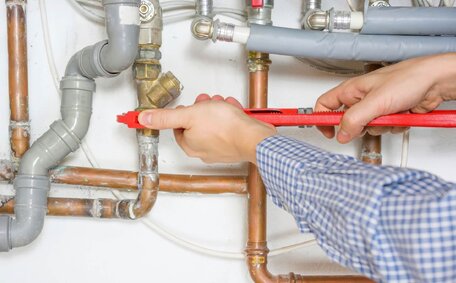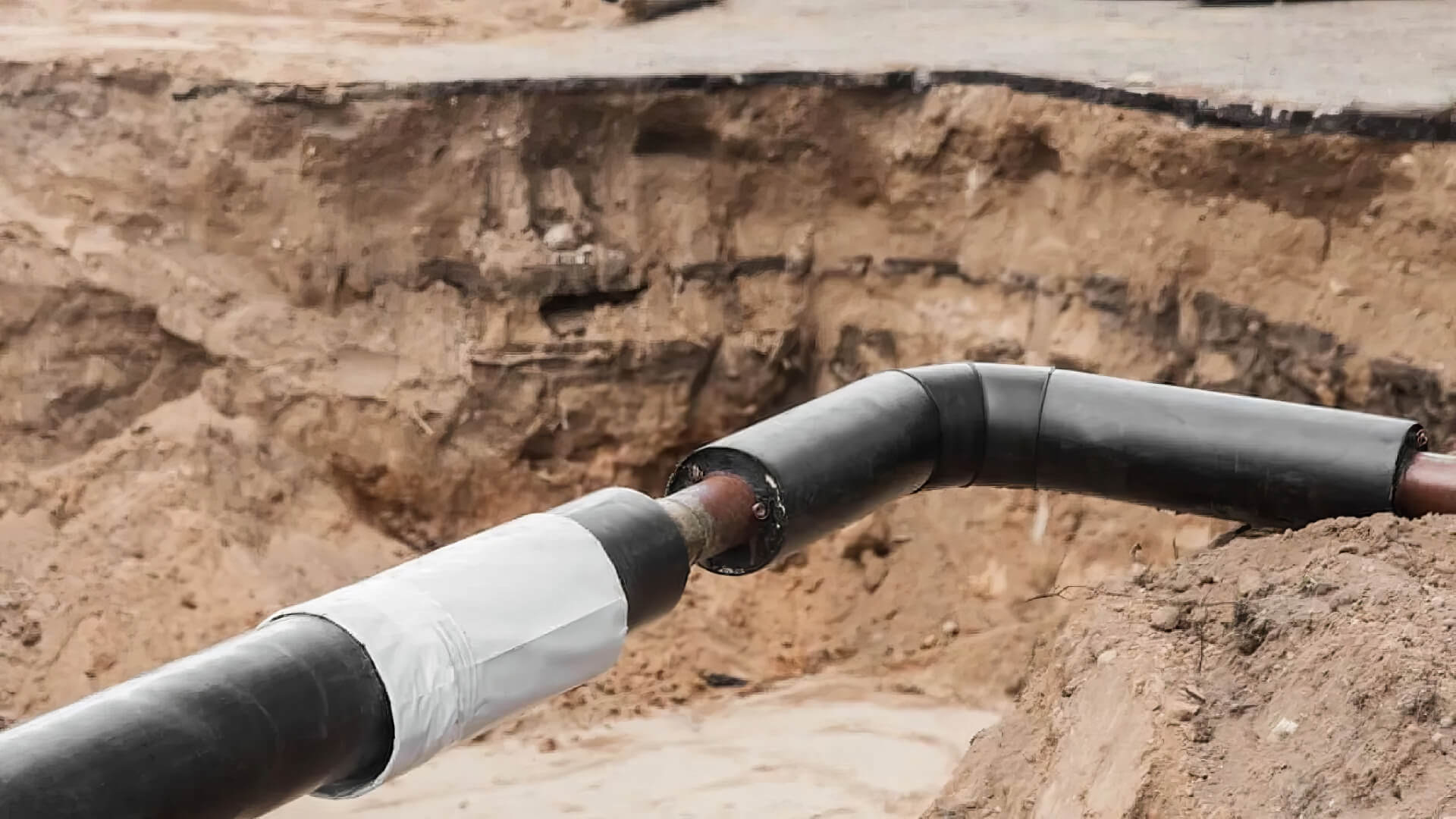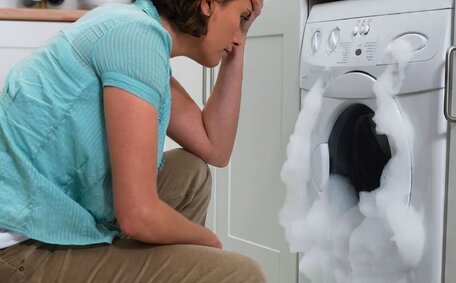
What’s involved in upgrading your gas meter?
Upgrading your gas meter is a simple process completed by qualified technicians. It involves disconnecting your gas supply for 15 minutes to swap the meter. Contact us today for a quote.
Read MoreChemical drain cleaners are widely used in both homes and businesses to address clogged or slow drains. These potent formulations effectively dissolve hair, grease, and other debris blocking your plumbing system, thanks to ingredients like sulfuric acid or sodium hydroxide.
In the Mortdale area, concerns about chemical drain cleaners are commonplace due to issues with clogged drains in residences and commercial settings. Chemical drain cleaners offer a DIY solution that many people find convenient and are readily available from supermarkets and hardware stores. Yet, misuse of these powerful drain cleaning solutions can damage piping and pose substantial health risks.
This article will explore the various types of chemical drain cleaners, how they clear blockages, their associated risks, and safer options for homeowners and businesses.
Chemical drain cleaners are potent products that can utilise a chemical reaction to ensure clogs break down and flow away. There are three primary categories of chemical drain cleaners:
When poured down your drain, these chemicals react with a blocked drain, disintegrating it so remnants can flow away down your drain. They can be very effective at dislodging tough clogs and restoring the circulation within your plumbing system.
However, it’s critical to also consider the risks associated with chemical drain cleaners. Their corrosive ingredients can damage your plumbing over time, casting doubt on the safety of these drain cleaners. They can also harm your skin, produce toxic fumes, and negatively impact your septic system if used incorrectly.
Indeed, persistent clogs and incorrect use of drain cleaners can lead to pipe damage and plumbing system issues over time.
The corrosive chemicals in acidic or caustic drain cleaners can eat away at materials like metal pipes, which can get clogged or damaged. Repeated use can cause damage to the protective interior linings, allowing for corrosion and leaks. Even PVC and other materials like plastic and fibreglass, though more durable, can degrade and crack, leading to additional problems.
Even small leaks spurred by chemical reactions can allow water to seep away, showing how water can cause extensive damage and lead to costly repairs. It is wise to avoid using drain cleaners excessively or pouring too much down at once, as this increases the risks.
Instead of immediately turning to liquid drain cleaners, one should first consider preventive tactics or seek safer alternatives. For severe clogs, reach out to us today; a professional plumber can properly diagnose issues using camera inspections and is skilled at clearing blockages with minimal risk to pipes.
Using chemical drain cleaners, particularly improperly, poses health risks. Their corrosive ingredients like acids or lye caustic materials can burn sensitive areas such as skin and eyes when used improperly. Fumes released from reactions with clogs may also irritate airways or cause breathing difficulty.
There is an increased hazard for children pets, and other vulnerable members if they come into contact with these chemicals. In the event of exposure, urgently contact poison control or seek medical assistance. Proper ventilation is important when deploying any kind of chemical cleaner.
Furthermore, when washed into waterways, drain cleaners can damage marine life and disrupt ecosystems. Their pH levels may drastically change environments, washing away your local ecosystem’s balance. Disposing of unused products correctly is vital.
Considering preventive measures first or trying alternative solutions like boiling water or plungers reduces dependence on toxic chemicals in households.
Before resorting to harsh chemicals, consider several effective, safer alternatives, like hot water.
Preventive measures, such as baking soda and vinegar mixtures, can significantly diminish the necessity for commercial drain cleaners:
Natural, non-toxic methods are also effective for dissolving and managing clogs:
Manual tools such as plungers and drain snakes can clear blockages, negating the need for chemical drain cleaners, while professional augering can safely remove debris.
For Mortdale residents, adopting preventive measures is a sensible strategy for managing stubborn clogs, as opposed to chemical-based solutions that can deteriorate older pipes. Non-toxic methods or calling a professional plumber are the safest approaches.
It’s recommended to consult a professional plumber for significant or enduring clogs instead of resorting to chemical drain cleaners:
In the Mortdale area, contact the professional plumbers at Mortdale Plumbing by phone on 1300 349 338 or email [email protected]. Our experienced technicians can thoroughly inspect your drains with CCTV and hydro jetting equipment, swiftly resolving stubborn clogs without damaging pipes.
Instead of grappling with chemical drain cleaners, entrust the task to our licensed experts for safe handling. We also provide professional drain maintenance to prevent future clogging issues.
When using chemical drain cleaners, it’s critical to adhere to all safety precautions to prevent injuries or accidents:
It’s important to dispose of unused cleaner, packaging, cloths, and gloves appropriately, rather than washing residues down the drain, which could harm aquatic environments.
Check guidelines with your local council about the proper disposal methods for hazardous products, especially when you use chemical drain cleaners. Special facilities often handle tough waste materials.
Exercising caution when using chemical drain cleaners reduces risks to yourself, your family, and the wider environment. Contact a professional if unsure about working with these corrosive products yourself.
While chemical drain cleaners are effective at removing blockages, homeowners should carefully consider the associated risks.
Their corrosive components, including sulfuric acid, sodium hydroxide, and oxidizers, are employed to dissolve clogs. Nevertheless, these chemicals can corrode pipes, emit harmful fumes, irritate skin and eyes, pollute water systems, and detrimentally affect septic tanks.
Regular or overuse of chemical drain cleaners may cause leaks and deterioration, incurring greater expenses over time. They should not be the first solution reached for, especially if safeguarding all your household’s piping is a priority.
Thankfully, many safer physical and natural alternatives exist, like plungers, augers, boiling water, baking soda, vinegar or enzymatic cleaners. Preventative measures also reduce clogging in the first place.
Contact professional plumbers like Mortdale Plumbing immediately if you experience large, persistent or foul-smelling clogs. Our specialists will precisely identify issues and use secure, cutting-edge hydro jetting techniques to rectify drainage without compromising the health of homeowners or the integrity of plumbing systems.
Upgrading your gas meter is a simple process completed by qualified technicians. It involves disconnecting your gas supply for 15 minutes to swap the meter. Contact us today for a quote.
Read MoreWe use only the most durable, long-lasting and eco-friendly pipe relining materials such as PVC and epoxy resin to repair pipes without excavation.
Read MoreChemical drain cleaners contain toxic chemicals like sulfuric acid and sodium hydroxide that can damage pipes, disrupt septic systems, and harm humans if inhaled or make contact with skin. Avoid chemical drain cleaners and call Mortdale Plumbing at [phone] for safe, eco-friendly drain cleaning.
Read MoreMortdale, 2223 NSW
We will call back as soon as possible.




